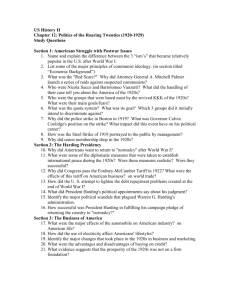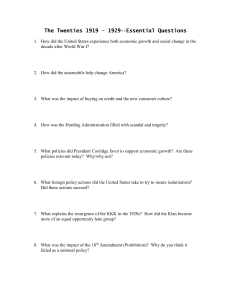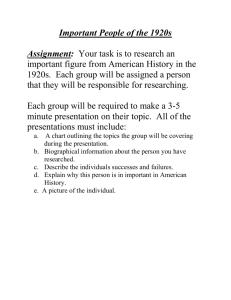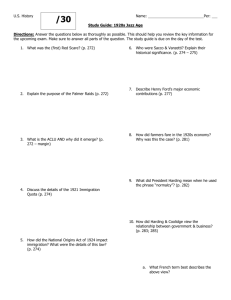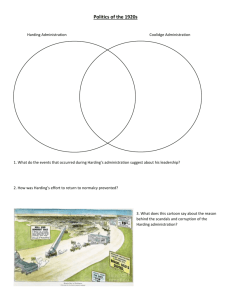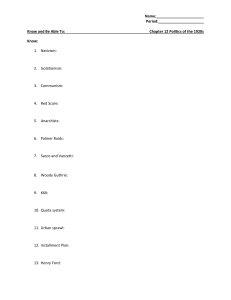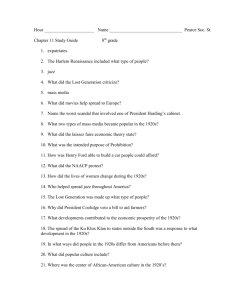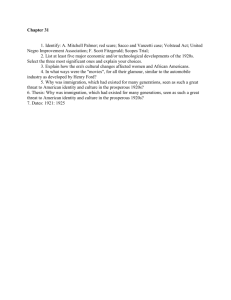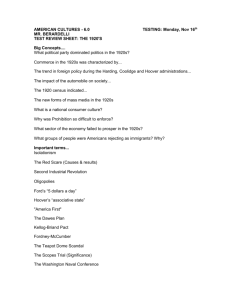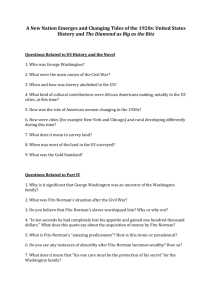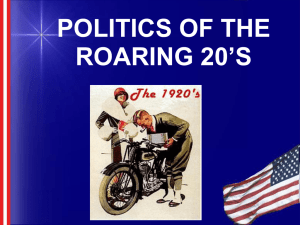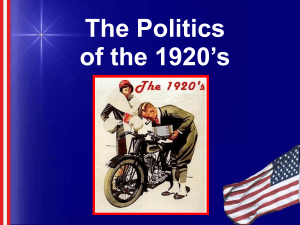File
advertisement
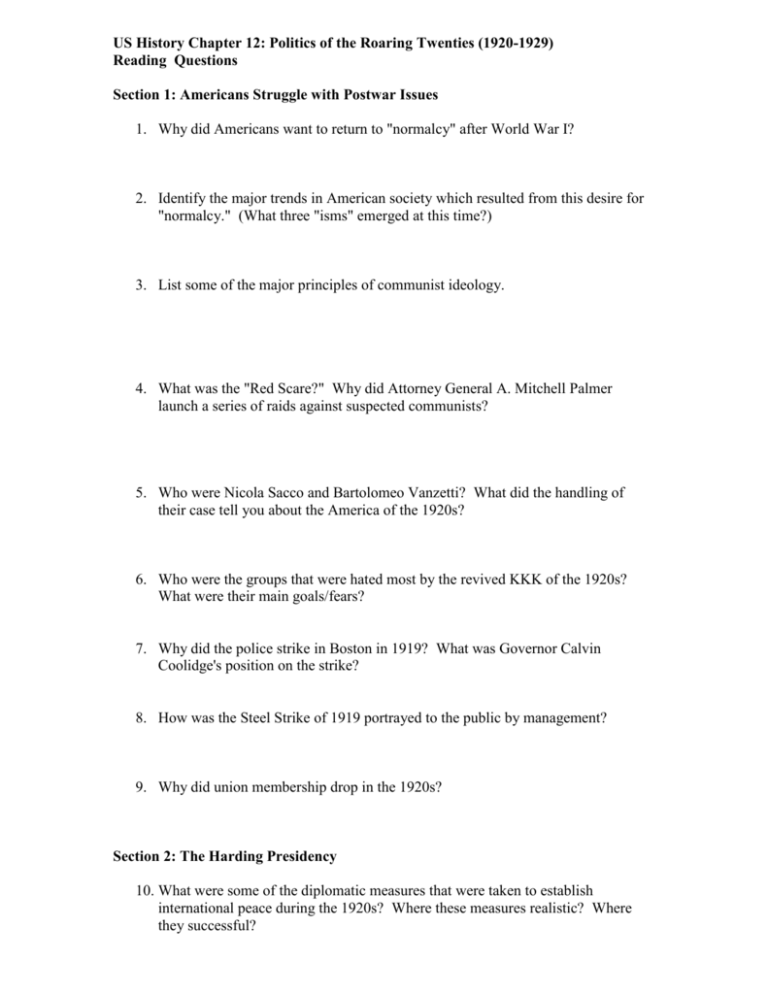
US History Chapter 12: Politics of the Roaring Twenties (1920-1929) Reading Questions Section 1: Americans Struggle with Postwar Issues 1. Why did Americans want to return to "normalcy" after World War I? 2. Identify the major trends in American society which resulted from this desire for "normalcy." (What three "isms" emerged at this time?) 3. List some of the major principles of communist ideology. 4. What was the "Red Scare?" Why did Attorney General A. Mitchell Palmer launch a series of raids against suspected communists? 5. Who were Nicola Sacco and Bartolomeo Vanzetti? What did the handling of their case tell you about the America of the 1920s? 6. Who were the groups that were hated most by the revived KKK of the 1920s? What were their main goals/fears? 7. Why did the police strike in Boston in 1919? What was Governor Calvin Coolidge's position on the strike? 8. How was the Steel Strike of 1919 portrayed to the public by management? 9. Why did union membership drop in the 1920s? Section 2: The Harding Presidency 10. What were some of the diplomatic measures that were taken to establish international peace during the 1920s? Where these measures realistic? Where they successful? 11. Why did Congress pass the Fordney-McCumber Tariff in 1922? What were the effects of this tariff on American business and on world trade? 12. How did the U. S. attempt to lighten the debt repayment problems created at the end of World War I? 13. How did Congress make changes in immigration policies in the 1920s? 14. Why was the quota system regarding immigration initiated? 15. What did President Harding's political appointments say about his judgment? 16. Identify the major political scandals that plagued Warren G. Harding's administration. 17. How successful was President Harding in fulfilling his campaign pledge of returning the country to "normalcy?" Section 3: The Business of America 18. What were the major effects of the automobile on American industry? on American life? 19. How did the use of electricity affect Americans' lifestyles? 20. Identify the major changes that took place in the 1920s in business and marketing. 21. What were the advantages and disadvantages of buying on credit? 22. What evidence suggests that the prosperity of the 1920s was not on a firm foundation?
